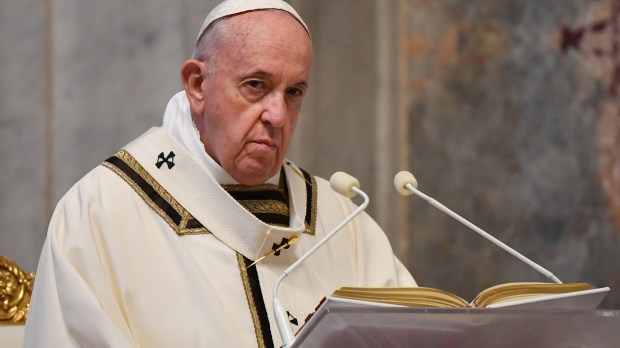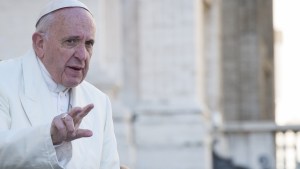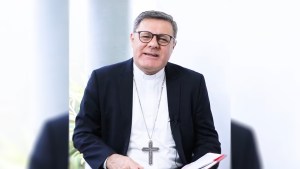The “ideological colonizations” that “trash” family values were at the heart of Pope Francis’ address to the Schoenstatt Fathers on September 1, 2022, at the Vatican.
The priests of this movement, which has nearly 100,000 members, were received on the occasion of their general chapter, during which they elected their new superior, Father Alexandre Awi Mello, for a six-year term. This Brazilian priest was serving in the Vatican, as Secretary of the Dicastery for the Laity, Family, and Life, a position he will now leave.
The Pope began his address with a heartfelt tribute to Father Mello. Speaking in Spanish and leaving his text, the Argentine Pontiff spoke of his collaboration with the Brazilian religious, who was his secretary during the conference of the Latin American episcopate in Aparecida in 2007, for which the then Cardinal Bergoglio was the rapporteur. He also accompanied him to the World Youth Day in Rio in 2013, which was the first apostolic journey of Pope Francis.
Elected on August 18 to lead the Schoenstatt Fathers, Awi Mello, who was ordained a priest in 2001 for this spiritual family and served as its national director in Brazil. He had been appointed secretary of the Dicastery for the Laity, Family and Life on May 31, 2017. “Thank you for your collaboration during these years in communion with the Successor of Peter, for the good of the whole Church. I wish you a fruitful ministry in this new responsibility entrusted to you,” Pope Francis said.
Addressing the entire community, the Pope praised the “beautiful service to the Church and to the world” provided by the Schoenstatt movement, which is particularly invited to accompany “families in the various vicissitudes and trials they go through,” bringing them a “message of hope” in the face of “dark situations.”
What is “ideological colonization”?
The phrase “ideological colonization” is one that the Pope has used on a number of occasions. He often uses it in reference to family ethics, marriage, and gender issues, for example, regarding transgenderism.
And it often comes up in regard to poorer regions of the globe, and the influence wielded by rich countries in financial support.
Reacting to the “plundering of human values”
The Pope stressed that “the world is asking us more and more to give answers to the questions and anxieties of the men and women of our time.”
He denounced once again the “plundering of human values, a plundering that is savagely carried out by ideological colonizations of all kinds.”
“We often see that the nature of the family is attacked by various ideologies that undermine the foundations of the personality of the human being and, in general, of the whole of society,” the Pope lamented, stressing once again the importance of the bond between the youngest and the oldest, because only in this way is “personal and family identity preserved.”
He urged the members of the movement to show “courage to open new paths in the service of families, to make the beauty of the Covenant established between God and man shine through the spirituality and living of Christian values.”
Suspension of the beatification process of the founder
The Schoenstatt community, founded in the German village of the same name in 1914, at the beginning of the First World War, spread throughout some 40 countries during the 20th century, notably in South Africa and Latin America. Its founder, Father Josef Kentenich (1885-1968), had his beatification process suspended because of accusations of sexual abuse of nuns in the movement.
Italian historian and theologian Alexandra von Teuffenbach, who was investigating the archives of Pius XII’s pontificate, revealed in July 2020 that Father Kentenich had been the subject of an apostolic visitation in 1951, at which time he was ordered to stay away from his work, until 1965, three years before his death. The movement rejected the allegations of abuse, but agreed to the establishment of a commission of historians, instituted by the Bishop of Trier, Stephan Ackermann.



